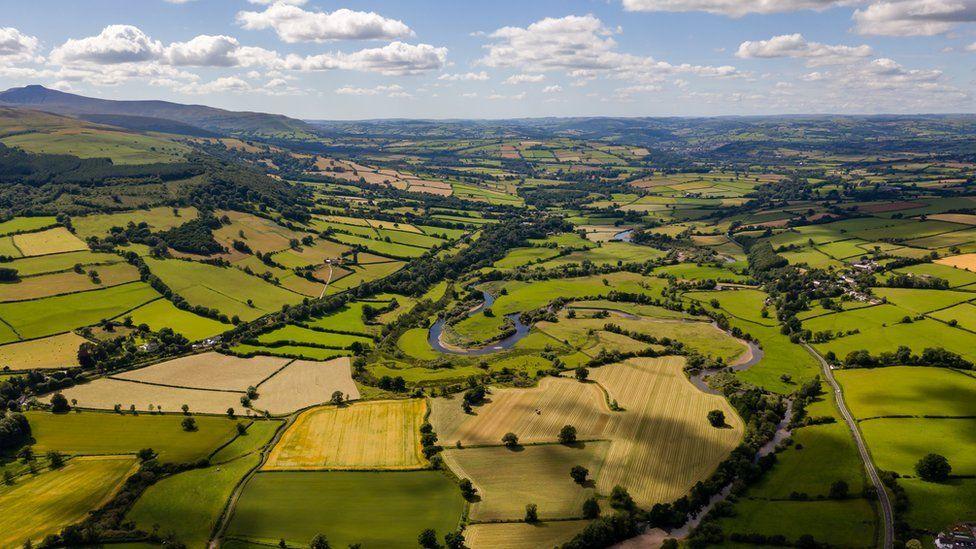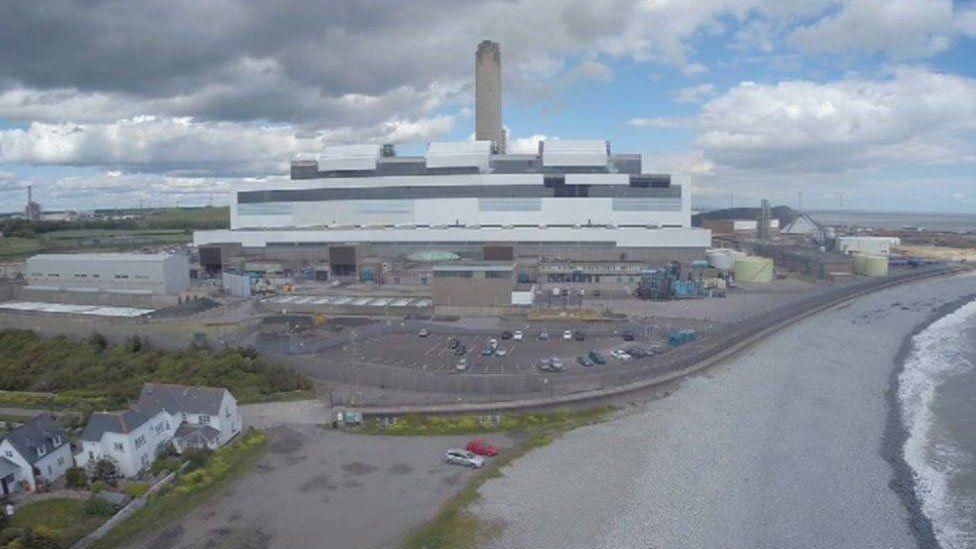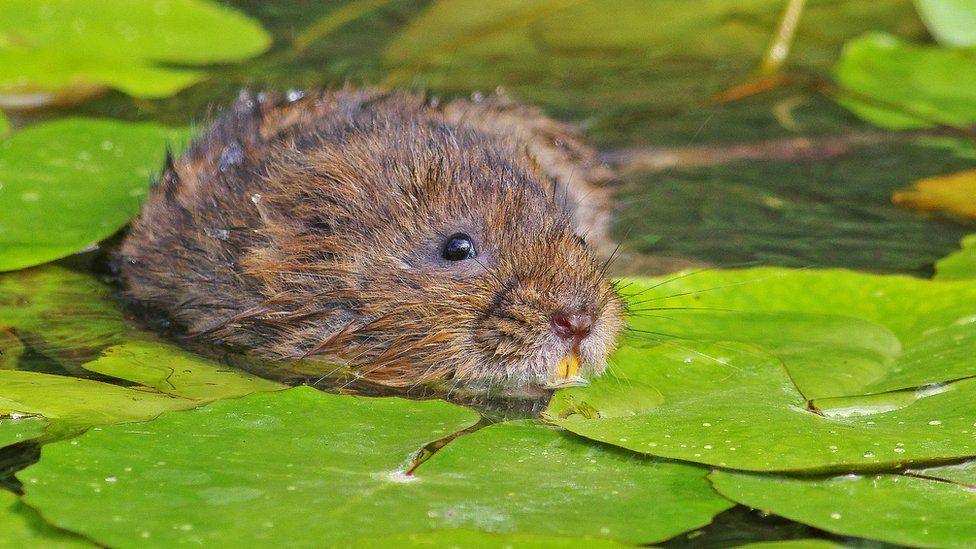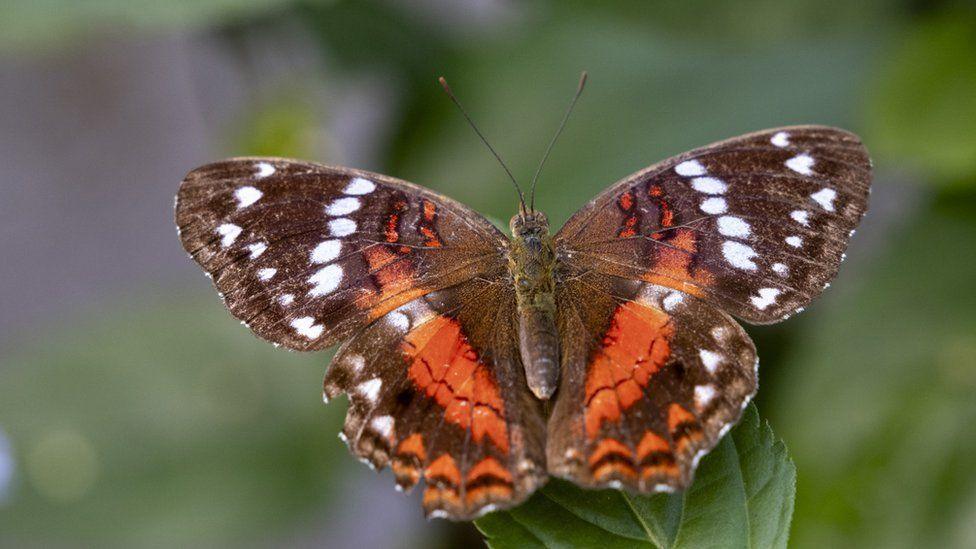Nature laws to protect wildlife in Wales

Wales is the only part of the UK without permanent environmental protection arrangements in place
- Published
Plans for new laws to reverse the loss of wildlife and protect nature have been outlined by the Welsh government.
They include setting up a new, independent watchdog to hold organisations' feet to the fire on environmental issues like sewage spills or air pollution.
Public bodies in Wales will also be forced to publish nature recovery action plans.
Opposition parties and campaigners said the changes were long overdue and urged ministers to "crack on".
Lack of post-Brexit environment watchdog criticised
- Published21 September 2023
Rules broken on power station pollution
- Published21 September 2016
Devastating loss of wildlife in Wales, says report
- Published28 September 2023
In recent years the Welsh government has faced criticism for the time it is taking to plug what has been seen as a gap in environmental protections after Brexit.
People used to be able to complain free of charge to the European Commission if they felt their government and its public bodies were not doing enough to abide by green laws and protect nature.
It could decide to investigate on their behalf and force member states to take action - notable examples involving Wales included addressing emissions of harmful pollutants from Aberthaw coal-fired power station in the Vale of Glamorgan.
The UK government set up an independent Office for Environmental Protection (OEP) in 2021 to carry out a similar role for England and Northern Ireland, while the Scottish government set up an organisation called Environmental Standards Scotland in the same year.
It left Wales as the only part of the UK without permanent arrangements in place.

In 2016 the European Court of Justice ruled the UK government failed to limit pollution at Aberthaw
Climate Change Minister Julie James argued her proposals offered the chance to "leapfrog the other nations" and "go from last to first".
"We've been able to learn of the problems and difficulties there have been in the English and Scottish models - as well as learn from the things they've done well," she said.
The new environmental governance body would comprise of around eight commissioners with a range of expertise, with twelve additional staff recruited to support their work.
It would look into the performance of Welsh government, public authorities and some private firms like water companies operating in Wales too, focusing on issues or complaints raised by the public.
While it would start by providing guidance and support on improving environmental performance or meeting targets, it would have the power to take court action if needed.
The plans feature in a long-awaited white paper - or proposal - for a new Environmental Principles, Governance and Biodiversity targets bill. , external

Water voles, among many other animals, are at risk of vanishing from Wales
The bill would also put targets on reversing loss of wildlife into law - with a headline goal of stopping the declines in biodiversity by 2030 and for there to be "clear recovery" by 2050.
More specific targets on particular species and habitats will follow, it says.
The latest stocktake of Wales' wildlife in 2023 revealed what conservationists branded as nature loss on a "devastating scale", with one in six species at risk of disappearing.
Public bodies will be tasked with preparing and publishing a nature recovery action plan for their areas, while the government will have to bring out an overall strategy.

Nature is in "crisis," Wildlife Trusts Wales says
"This is a vital, much needed step in restoring nature - ambitious targets to guide this and future governments, with an independent watchdog to monitor progress and hold public bodies' feet to the fire," said Ruth Chambers, senior fellow at the Green Alliance think tank.
"The government must now crack on and get these welcome but long overdue measures in place as quickly as possible," she said.
Writing on X, formerly known as Twitter, Wildlife Trusts Wales said it too welcomed the proposals but added: "we need this ASAP! We're in a nature crisis!".
Delyth Jewell, Plaid Cymru's environment spokesperson said there was "a genuine need for urgent legislation on this issue".
"We've been waiting too long for this - we'll need to make sure the arrangements work well but also that the public understands them," she added.
Janet Finch-Saunders, of the Welsh Conservatives, also warned the proposals were "already long overdue" with potentially years yet until the new organisation was actually up and running.